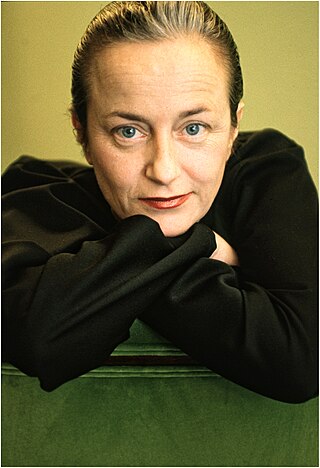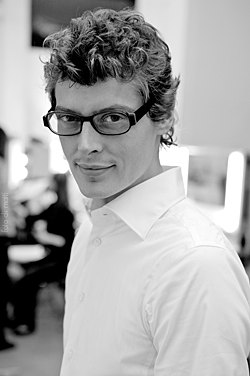Related Research Articles

Ben & Jerry's Homemade Holdings Inc., trading and commonly known as Ben & Jerry's, is an American company that manufactures ice cream, frozen yogurt, and sorbet. Founded in 1978 in Burlington, Vermont, the company went from a single ice cream parlor to a multi-national brand over the course of a few decades. The company was sold in 2000 to the multinational conglomerate Unilever but operates as an independent subsidiary. Its present-day headquarters is in South Burlington, Vermont, with its factory in Waterbury, Vermont.

Unilever PLC is a British multinational fast-moving consumer goods company founded on 2 September 1929 following the merger of British soap maker Lever Brothers and Dutch margarine producer Margarine Unie. It is headquartered in London.
Revlon, Inc. is an American multinational company dealing in cosmetics, skin care, perfume, and personal care. The headquarters of Revlon was established in New York City on March 1, 1932, where it remains. Revlon was founded by brothers Charles and Joseph Revson, and chemist Charles Lachman. Revlon products are sold in 150 countries and the company has many global locations including Mexico City, London, Paris, Hong Kong, Indonesia, Sydney, Singapore, and Tokyo.

Guccio Gucci S.p.A., doing business as Gucci, is an Italian luxury fashion house based in Florence, Italy. Its product lines include handbags, ready-to-wear, footwear, accessories, and home decoration; and it licenses its name and branding to Coty for fragrance and cosmetics under the name Gucci Beauty.

Good Humor is a Good Humor-Breyers brand of ice cream started with Harry Burt in Youngstown, Ohio, US, in the early 1920s with the Good Humor bar, a chocolate-coated ice cream bar on a stick sold from ice cream trucks and retail outlets. It was a fixture in American popular culture in the 1950s when the company operated up to 2,000 "sales cars".

Breyers is a brand of ice cream started in 1866 by William A. Breyer in Philadelphia, Pennsylvania.

Kering is a French-based multinational corporation specializing in luxury goods. It owns the brands Gucci, Balenciaga, Bottega Veneta, Yves Saint Laurent, Creed and Alexander McQueen.

Moschino is an Italian luxury fashion house founded in 1983 by Franco Moschino in Milan known for over-the-top, campy designs. The company specializes in ready-to-wear, handbags, and fashion accessories. Moschino's creative director is Adrian Appiolaza.

Tod's S.p.A. is an Italian luxury fashion house specialized in footwear, apparel, and related accessories headquartered in Marche, Italy. Its core branding includes an oval nameplate, a roaring lion, with signature brown and orange packaging. The company is an influencer in the Sprezzatura fashion movement. Its highest-selling products are pebble-sole “Gommino” driving shoes, leather (suede) loafers, boots, sneakers, and handbags.

Suzy Peta Menkes is a British journalist and fashion critic. Formerly the fashion editor for the International Herald Tribune, Menkes also served as editor, Vogue International, for 25 international editions of Vogue online until October 2020.

Choco Taco was a Good Humor-Breyers ice cream novelty resembling a taco. It consisted of a disk of waffle cone material folded to resemble a hard taco shell, reduced-fat vanilla ice cream, artificially flavored fudge, peanuts, and a milk chocolate coating. The Choco Taco was marketed under the Klondike brand as "The Original Ice Cream Taco".

François-Henri Pinault is a French businessman, the chairman and CEO of Kering since 2005, and president of Groupe Artémis since 2003. Under his leadership, the retail conglomerate PPR was transformed into the luxury fashion group Kering.
Rose Marie Bravo is an American businesswoman. During her career, she has occupied leadership positions in several major fashion businesses and is now vice chairman at Burberry, of which she was CEO from 1997 to 2005.
Alessandra Facchinetti is an Italian fashion designer who is known for her work as creative director at Gucci (2004–2005), Valentino (2008–2010) and Tod's (2013–2016).

Lidewij de Gerarda Hillegonda Edelkoort, often called Li, is a Dutch trend forecaster, someone who anticipates future fashion and design trends. She has been the Founder and Chief Executive Officer of Trend Union since 1986.

Bruno Pieters is a Belgian fashion designer based in Antwerp. He studied at the Royal Academy of Fine Arts in Antwerp graduating with a BA in Fashion Design in 1999. Pieters is highly regarded for his avant-garde creations and sharp tailoring. He worked with renowned designers including Martin Margiela, Josephus Thimister and Christian Lacroix to develop his talent. After a two-year break, he introduced his comeback label Honest By Bruno Pieters in 2012.
Frida Giannini is an Italian fashion designer. She was the creative director of the Italian fashion house Gucci from 2006 to 2014.
Paul Deneve is a Belgium business executive and former vice president at Apple from 2013 to 2017. He is the former chief executive of Yves Saint Laurent (YSL), a subsidiary of Kering. Between 1997 and 2013, he managed a number of companies in the luxury sector, including Courreges, Nina Ricci, Lanvin and YSL.
Sir David John Lewis is an English businessman. He is the former CEO of Tesco, serving from 2014 to 2020. Prior to joining Tesco, he was president of global personal care at Unilever.
References
- 1 2 3 4 Fact Box: Robert Polet The Oregonian
- 1 2 3 4 5 6 Menkes, Suzy (2004-04-22). "PPR chooses Unilever ice cream executive to run Gucci". The New York Times . Retrieved 2023-08-09.
- ↑ Menkes, Suzy (2004-04-22). "Existing brands are the key in Polet's plan to bolster Gucci". The New York Times . Retrieved 2023-08-09.
- 1 2 "Polet, Gucci Group galvaniser, wins Fortune award". Reuters . 2007-01-09. Retrieved 2008-03-27.
- 1 2 3 4 5 6 Gumbel, Peter (2008-01-09). "Gucci Group: The ice cream man cometh". CNN Money (republishing Fortune Magazine). Retrieved 2008-03-27.
- ↑ Yang, Jia Lynn (2007-07-18). "Managing top talent at Gucci Group". CNN Money (republishing Fortune Magazine). Retrieved 2008-03-27.